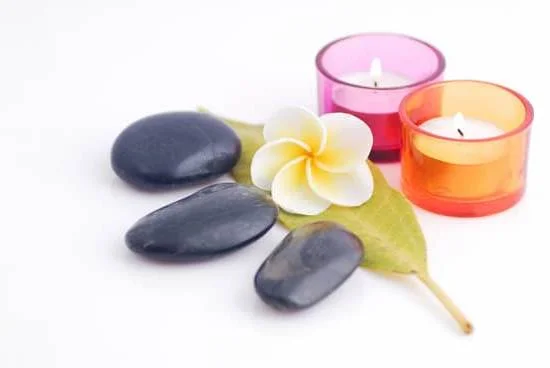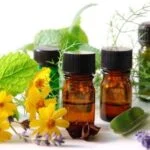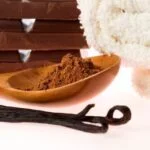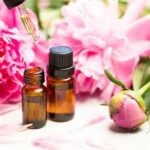Depression is a common mental health disorder that affects millions of people worldwide, often causing feelings of sadness and a loss of interest in activities. While traditional treatments such as therapy and medication are essential, many are seeking complementary and alternative methods to manage their symptoms. One such option that has gained attention is aromatherapy. In this article, we will explore the potential benefits of aromatherapy in managing depression and how it can be incorporated into a comprehensive treatment plan.
Aromatherapy is a holistic healing treatment that uses natural plant extracts, known as essential oils, to promote physical and mental well-being. These oils can be inhaled, applied topically, or ingested (in some cases) to stimulate the desired responses from the limbic system within the brain. The limbic system plays a vital role in emotions, behavior, motivation, long-term memory, and sense of smell. As a result, essential oils have the potential to impact mood and emotion in significant ways.
While the use of aromatherapy for depression is not new, there has been a growing interest in understanding its effectiveness as an alternative or complementary treatment method. Research studies have shown promising results on the impact of certain essential oils on mental health symptoms.
This has led many individuals to incorporate aromatherapy into their depression management plans alongside traditional treatments. In the following sections, we will explore what aromatherapy entails, the science behind it, common essential oils used for depression, practical techniques for managing symptoms with aromatherapy, personal experiences from individuals who have found relief through this method, and what existing research says about its efficacy.
What Is Aromatherapy
Aromatherapy is a holistic healing treatment that uses natural plant extracts to promote health and well-being. It harnesses the power of essential oils, which are highly concentrated liquids extracted from various parts of plants, such as the flowers, leaves, roots, and bark. These essential oils are often used in combination with massage therapy or other relaxation techniques to create a sense of calm and balance.
The practice of aromatherapy dates back thousands of years, with evidence of its use in ancient civilizations such as Egypt, China, and India. Aromatherapy is based on the principle that the aroma of these essential oils can stimulate brain function and impact the nervous system. This stimulation can help alleviate stress, improve mood, and promote overall emotional well-being.
| Essential Oil | Properties |
|---|---|
| Lavender | Calming and soothing; may help reduce anxiety and improve sleep quality |
| Bergamot | Euphoric and uplifting; may help relieve stress and mild depression |
| Chamomile | Sedative and calming; may help alleviate insomnia and irritability |
In the next section we will explore the science behind how these essential oils work within the body to provide these benefits.
The Science Behind Aromatherapy
Aromatherapy has been used for centuries as a holistic treatment for various ailments, including depression. The use of essential oils in aromatherapy is believed to have a positive impact on mood and emotions. But how exactly do essential oils work to help manage symptoms of depression?
Chemical Composition and Inhalation
The therapeutic effects of essential oils can be attributed to their chemical composition. When inhaled, the compounds in the essential oils stimulate the olfactory system, which is linked to the limbic system in the brain. The limbic system plays a role in regulating emotions, behavior, and memory, making it a key area for addressing depression. For example, lavender essential oil contains linalool and linalyl acetate, which have been shown to have calming and anti-anxiety effects when inhaled.
Topical Application and Absorption
In addition to inhalation, essential oils can also be absorbed through the skin when applied topically. Once absorbed, the compounds in the essential oils can enter the bloodstream and exert their therapeutic effects on the body. For instance, studies have suggested that applying bergamot essential oil topically may help reduce anxiety and improve mood by affecting neurotransmitters like serotonin and dopamine.
Combining Methods for Maximum Benefits
While both inhalation and topical application
Understanding how essential oils work at a chemical level helps shed light on their potential as an adjunct therapy for managing depression. As we continue to explore the science behind aromatherapy, it becomes evident that there is merit in considering this complementary approach as part of an individualized treatment plan for depression management.
Common Essential Oils Used for Depression
Aromatherapy has been gaining popularity as a complementary treatment for depression. Essential oils are the main components used in aromatherapy, and they have been found to have various benefits for mental health. Some essential oils that can be effective in managing depression include lavender, bergamot, chamomile, and jasmine. These oils are known for their calming and mood-lifting properties.
Lavender essential oil is one of the most popular choices for alleviating symptoms of depression. Studies have shown that inhaling the scent of lavender can help reduce anxiety and improve mood. Bergamot is another essential oil with uplifting effects. It works by promoting relaxation and reducing stress, which can be beneficial for people dealing with depressive symptoms.
Chamomile essential oil is known for its soothing and calming properties. It has been traditionally used to promote relaxation and alleviate symptoms of anxiety and depression. Jasmine essential oil, on the other hand, is often used to uplift mood and boost confidence. Its sweet floral scent can help create a sense of optimism and well-being.
| Essential Oil | Benefits |
|---|---|
| Lavender | Calming and mood-lifting properties |
| Bergamot | Promotes relaxation and reduces stress |
| Chamomile | Soothing and calming effects |
In addition to these essential oils, others like ylang-ylang, frankincense, and geranium are also known for their potential in managing depressive symptoms. When using essential oils for depression, it’s important to consider individual preferences and sensitivities to different scents. The benefits of aromatherapy can vary from person to person, so it’s advisable to experiment with different oils to find what works best for you.
While aromatherapy cannot replace medical treatment for depression, it can be a useful tool in managing symptoms when used alongside traditional therapies. Whether through inhalation or topical application, the soothing effects of certain essential oils can offer relief from feelings of sadness or anxiety.
Aromatherapy Techniques for Managing Depression
Aromatherapy offers a variety of techniques for managing depression, with inhalation and topical application being the most common methods. Inhalation involves the use of essential oils through diffusion or direct inhalation from the bottle.
This method allows the aroma of the essential oils to stimulate the olfactory system, which is directly connected to the limbic system in the brain, responsible for emotions and memories. The inhalation of certain essential oils can promote relaxation, reduce anxiety, and improve mood, making it an effective technique for managing symptoms of depression.
Topical application of essential oils involves diluting them with a carrier oil and applying them to the skin. The absorption of essential oils through the skin allows their therapeutic properties to take effect. Massaging essential oils onto specific areas like the temples or wrists can provide relief from depressive symptoms and induce a sense of calmness and well-being. Additionally, incorporating aromatherapy into self-care routines such as baths or massages can enhance its benefits for managing depression.
Aside from inhalation and topical application, other aromatherapy techniques such as using aromatic spritzers, adding essential oils to bathwater, or incorporating them into skincare products can also contribute to alleviating depressive symptoms. These various methods offer flexibility in integrating aromatherapy into daily routines, making it an accessible and practical complementary treatment option for individuals dealing with depression.
Incorporating Aromatherapy Into Your Depression Management Plan
When considering integrating aromatherapy into your depression management plan, it is important to consult with a healthcare professional or certified aromatherapist to determine which essential oils and techniques are suitable for your individual needs. It’s crucial to be mindful of any contraindications or potential interactions with medications before using aromatherapy as a complementary treatment for depression.
Additionally, learning proper dilution ratios and safe usage guidelines for each essential oil is essential in ensuring its effectiveness and safety when used for managing depressive symptoms.
Moreover, creating a consistent routine for aromatherapy practice can maximize its benefits in supporting mental health. Whether it’s incorporating aromatherapy sessions into your morning or bedtime rituals or using it as a tool for stress management throughout the day, establishing regularity in aromatherapy usage can aid in promoting emotional balance and resilience against depressive symptoms over time.
By integrating aromatherapy into your overall wellness regimen alongside other therapeutic interventions, you
Personal Experiences
Incorporating aromatherapy into a depression management plan can yield positive results based on real stories and experiences. Here are some personal accounts that shed light on the potential impact of aromatherapy in managing depression:
- Reduced Anxiety: Many individuals have reported feeling a reduction in anxiety symptoms after using essential oils through aromatherapy. One individual shared that inhaling lavender essential oil helped alleviate their feelings of restlessness and anxiety, providing a sense of calm and relaxation.
- Improved Mood: Some individuals have seen an improvement in their overall mood with the use of certain essential oils for aromatherapy. For example, using citrus-based essential oils like lemon or orange has been noted to uplift mood and promote feelings of positivity and happiness.
- Better Sleep Quality: A common challenge for individuals dealing with depression is disrupted sleep patterns. Through aromatherapy, specifically with the use of essential oils such as chamomile or sandalwood, some have found that they were able to achieve better quality sleep, leading to improved mental well-being.
These personal experiences highlight the potential benefits that aromatherapy can offer as a complementary approach for managing depression symptoms. While individual responses to aromatherapy may vary, these real-life accounts provide valuable insight into how this alternative therapy can positively impact mental health.
Aromatherapy and Mental Health
When it comes to the question, “Can aromatherapy help with depression?” research has been conducted to explore the potential benefits of using essential oils as a complementary treatment for mental health conditions. While aromatherapy is not a substitute for professional medical treatment, several studies have indicated that it can play a supportive role in managing symptoms of depression.
Research has shown that certain essential oils have properties that can positively impact mood and emotions. Studies have found that inhaling the aroma of specific essential oils can stimulate the olfactory system and trigger reactions in the brain that affect emotional regulation. Additionally, some essential oils have been found to have anxiolytic and stress-relieving effects, which can be beneficial for individuals dealing with depression.
Here are some key findings from research on aromatherapy and mental health:
- A study published in the Journal of Alternative and Complementary Medicine found that inhalation of lavender essential oil reduced anxiety levels in patients awaiting dental treatment.
- Research published in the journal Complementary Therapies in Clinical Practice showed that inhaling bergamot essential oil reduced stress and improved mood in participants.
- A systematic review published in the International Journal of Nursing Practice concluded that aromatherapy had positive effects on psychological symptoms, including depression, anxiety, and stress.
It’s important to note that while these findings are promising, more research is needed to fully understand the mechanisms and potential benefits of aromatherapy for managing depression. As with any complementary therapy, it’s crucial to consult with a healthcare professional before incorporating aromatherapy into a depression management plan.
Incorporating Aromatherapy Into Your Depression Management Plan
Understanding the Role of Aromatherapy in Depression Management
Aromatherapy can be a valuable addition to your depression management plan, but it is not a standalone treatment for the condition. It is crucial to understand that aromatherapy is considered a complementary therapy, meaning it can be used alongside traditional medication and therapy.
Aromatherapy works by stimulating the olfactory system, which in turn affects the limbic system in the brain responsible for emotions and behaviors. By incorporating aromatherapy into your depression management plan, you can potentially enhance your overall well-being and mental health.
Selecting the Right Essential Oils
When incorporating aromatherapy into your depression management plan, it is essential to select the right essential oils. Some common essential oils used for depression include lavender, bergamot, chamomile, and frankincense. These oils are believed to have calming and mood-boosting effects. However, it is important to note that individual responses to essential oils may vary. It’s advisable to consult with a qualified aromatherapist or healthcare professional before selecting specific oils for your needs.
Methods of Application
There are various methods of applying essential oils for depression management through aromatherapy. Inhalation is one of the most common methods, where you can use a diffuser, inhale directly from the bottle, or add a few drops to a tissue or cotton ball. Topical application involves diluting essential oils with carrier oils and applying them to the skin through massage or baths.
Additionally, some individuals may find benefit from using essential oil blends in their personal care products such as lotions or bath salts. However, it’s important to use caution when applying essential oils topically as they can cause skin irritation if not properly diluted.
By incorporating aromatherapy into your depression management plan with these tips and considerations in mind, you
Conclusion
In conclusion, the use of aromatherapy as a complementary treatment for depression shows great potential in providing relief and improving mood among individuals. The soothing and calming effects of essential oils can help alleviate symptoms of depression and anxiety, providing a natural alternative to traditional medication. Incorporating aromatherapy into a comprehensive depression management plan can offer additional support and benefits to individuals struggling with this mental health condition.
Research has shown that certain essential oils have a positive impact on mood and emotional well-being, making them a promising option for those dealing with depression. With the right combination of aromatherapy techniques such as inhalation, diffusion, or topical application, individuals can experience the therapeutic benefits of essential oils in managing their symptoms.
While it may not be a standalone solution for severe cases of depression, it can certainly serve as a valuable tool in conjunction with other forms of treatment.
The personal experiences shared by individuals who have found relief from their depressive symptoms through aromatherapy highlight the potential effectiveness of this holistic approach. While more extensive research is needed to fully understand the mechanisms behind the impact of essential oils on mental health, the existing evidence suggests that aromatherapy can be a beneficial addition to the toolkit for managing depression.
Ultimately, integrating aromatherapy into one’s daily routine may provide an avenue for self-care and emotional support that could contribute to overall well-being.
Can aromatherapy help with depression? The answer seems to point toward yes, with further exploration warranted to fully understand its capabilities as part of comprehensive mental health care.
Frequently Asked Questions
What Helps People Cope With Depression?
Coping with depression can be a complex process, but some strategies that can help include therapy, medication, exercise, and social support. Therapy provides tools for coping, while medication can help stabilize mood.
What Is the Most Natural Antidepressant?
Exercise is often considered the most natural antidepressant as it releases endorphins, which are the body’s natural stress fighters. Physical activity has been shown to improve mood and reduce symptoms of depression.
What Is the Most Effective Treatment for Most People With Depression?
The most effective treatment for most people with depression is a combination of therapy and medication. While some individuals may respond well to one or the other, research has shown that the combination of both tends to be most beneficial in treating depression.

Are you looking for a natural way to improve your health and wellbeing?
If so, aromatherapy may be the answer for you.





